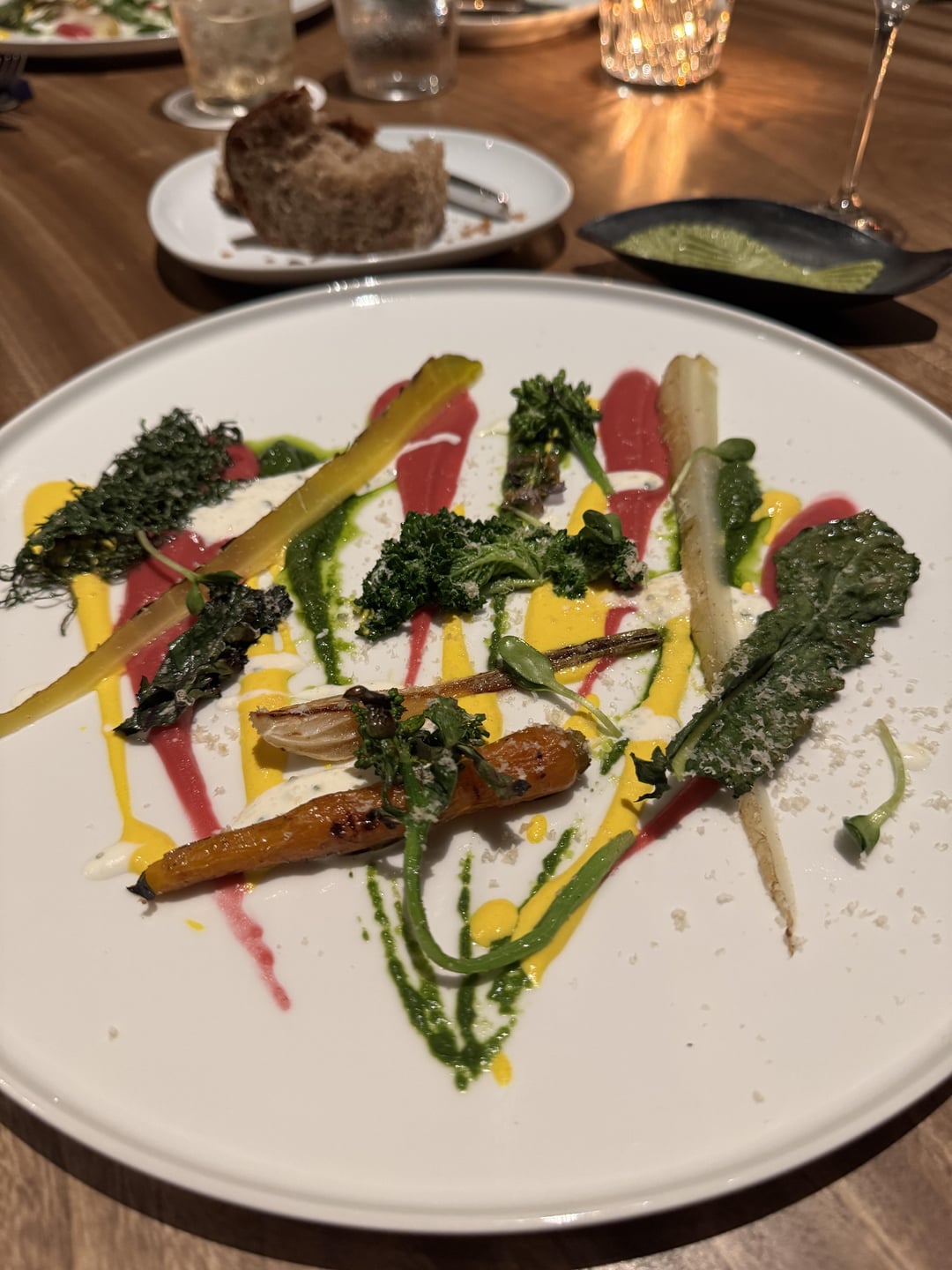
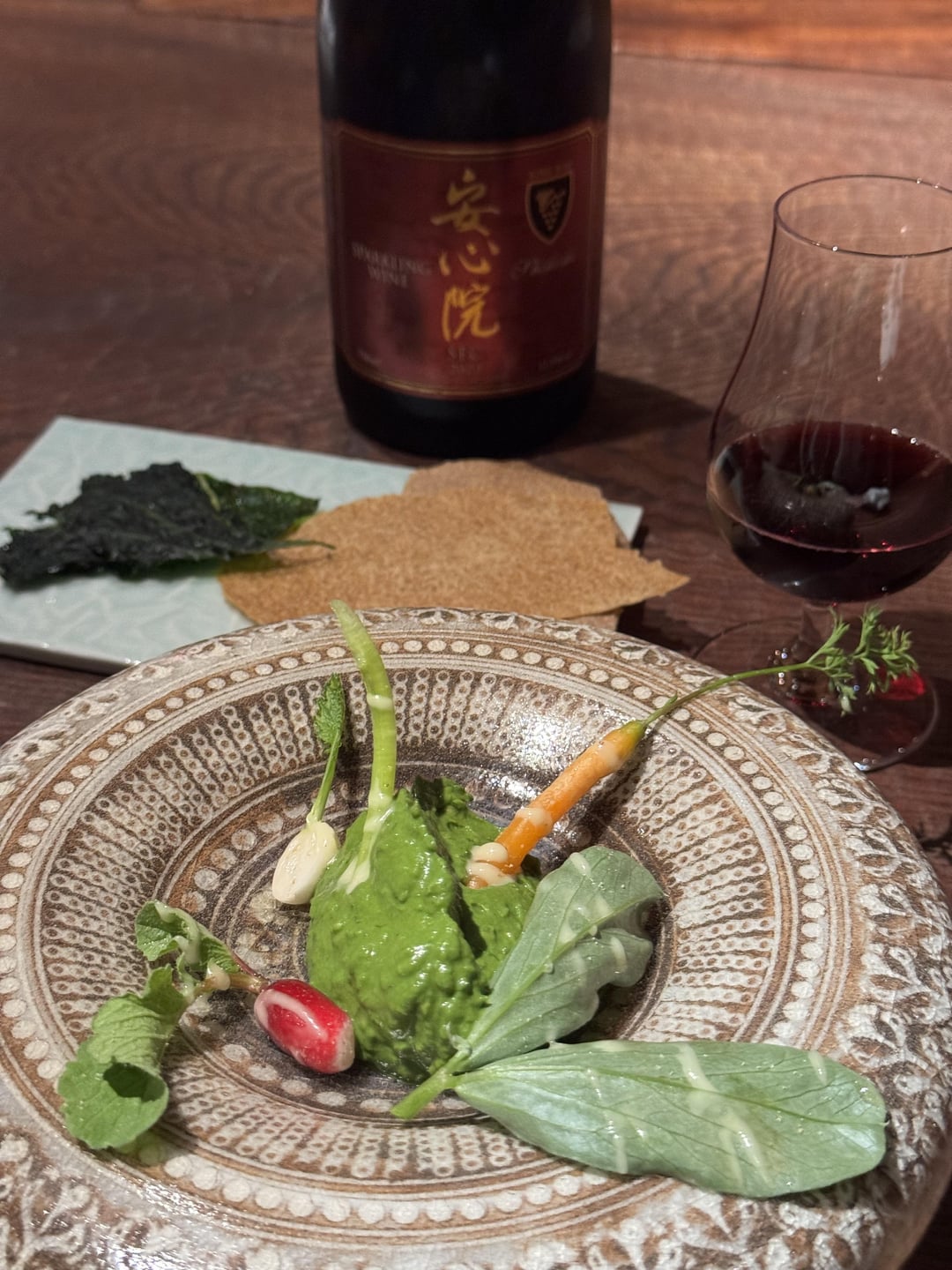
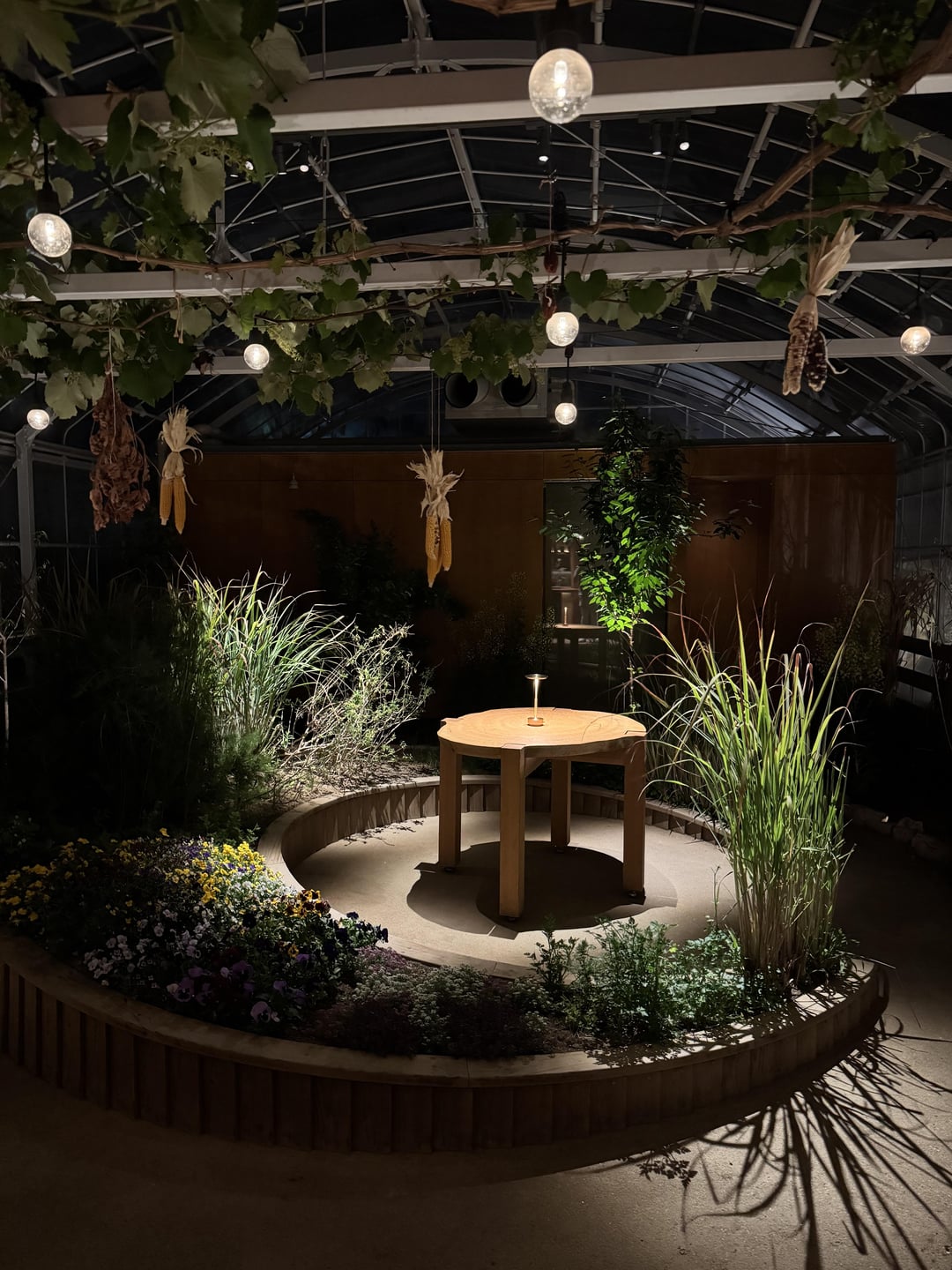
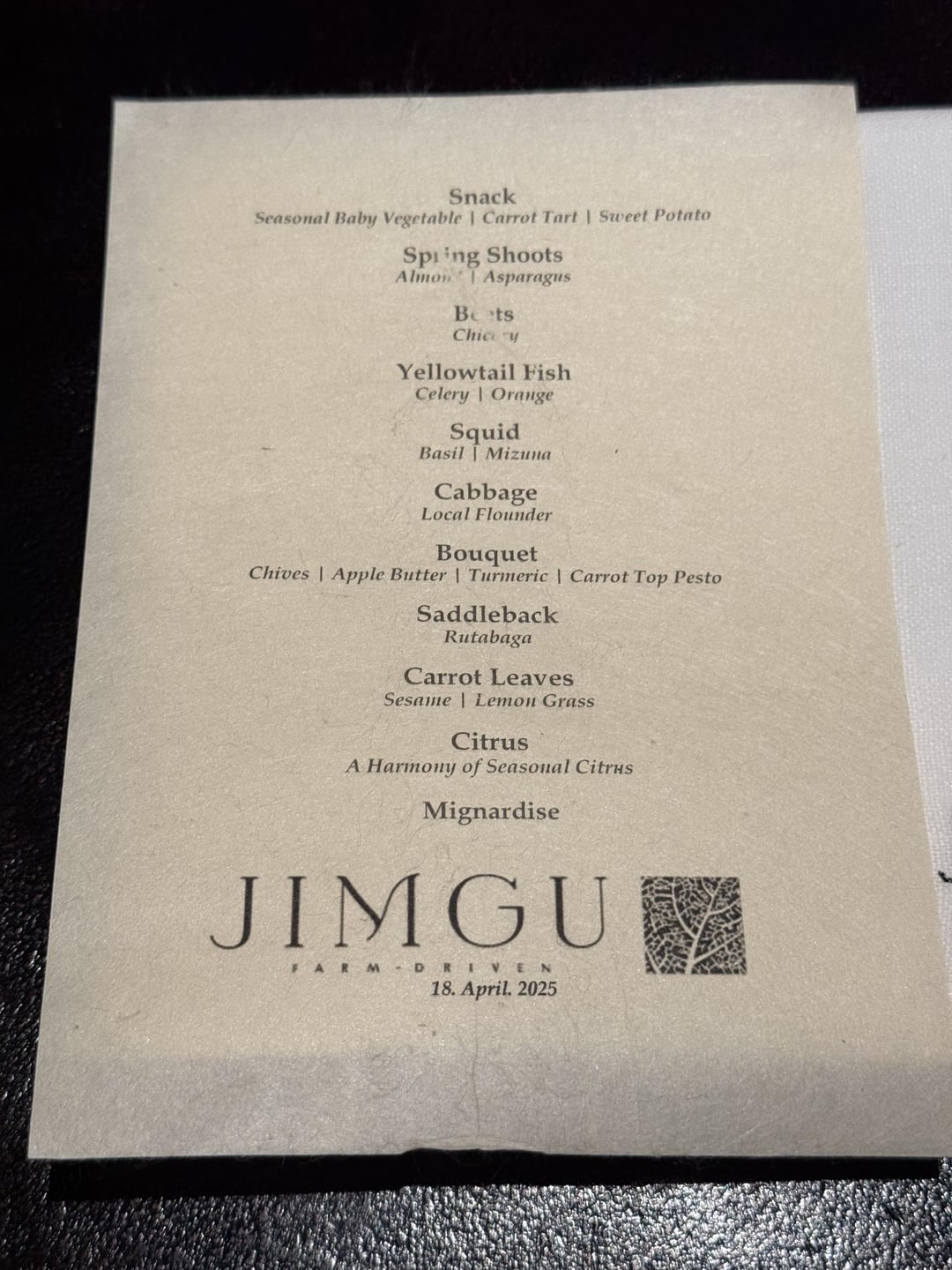
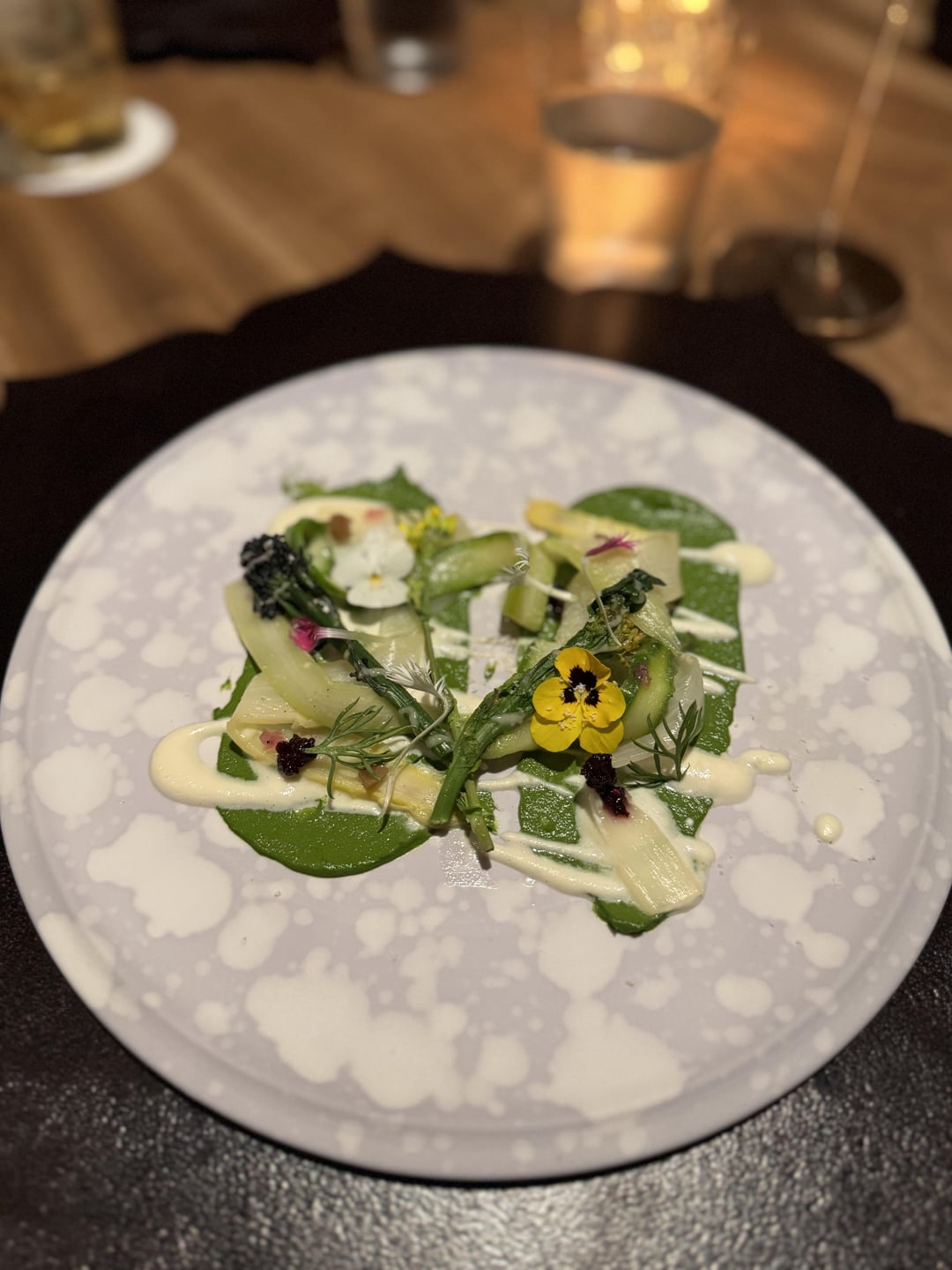
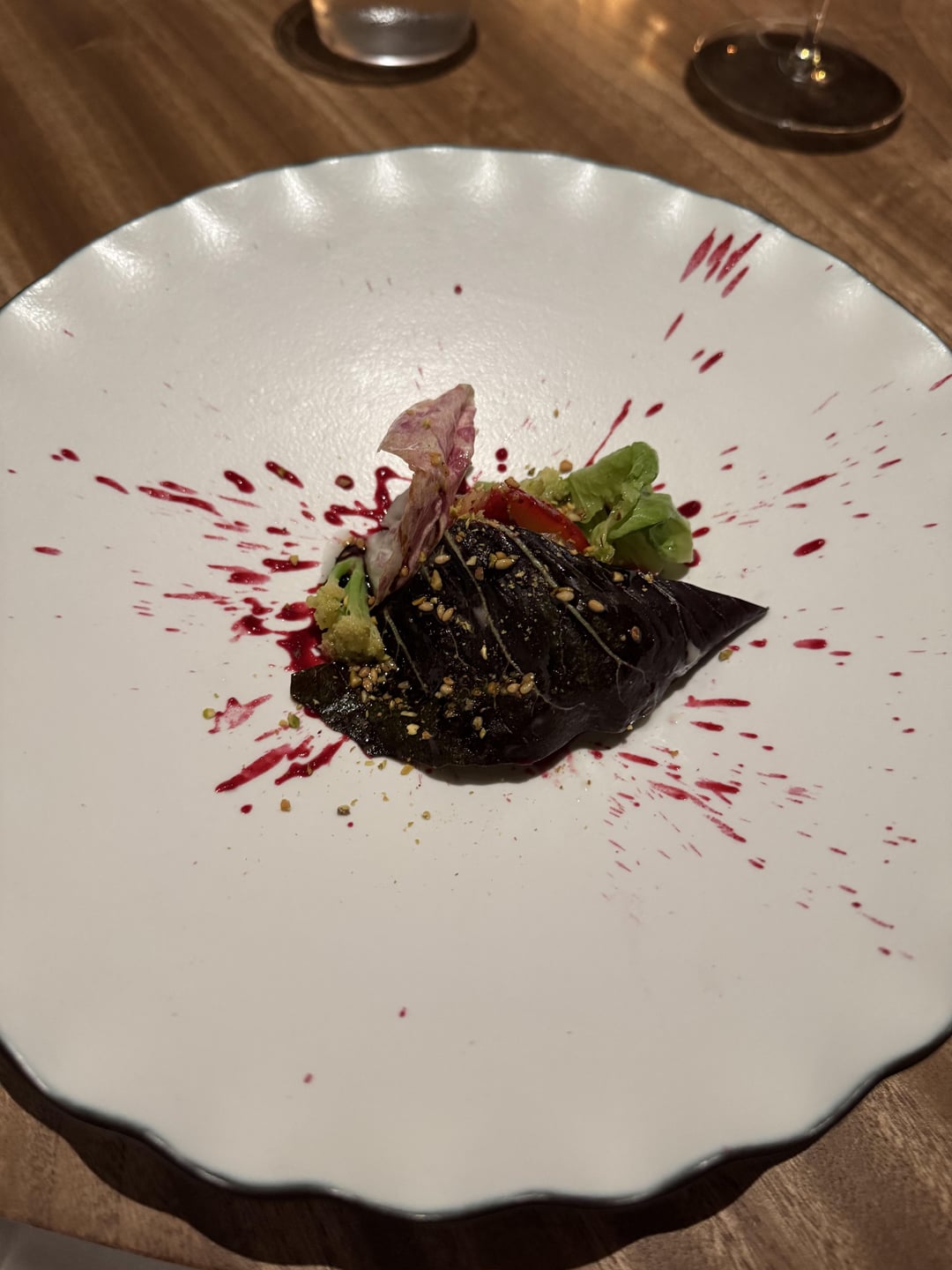
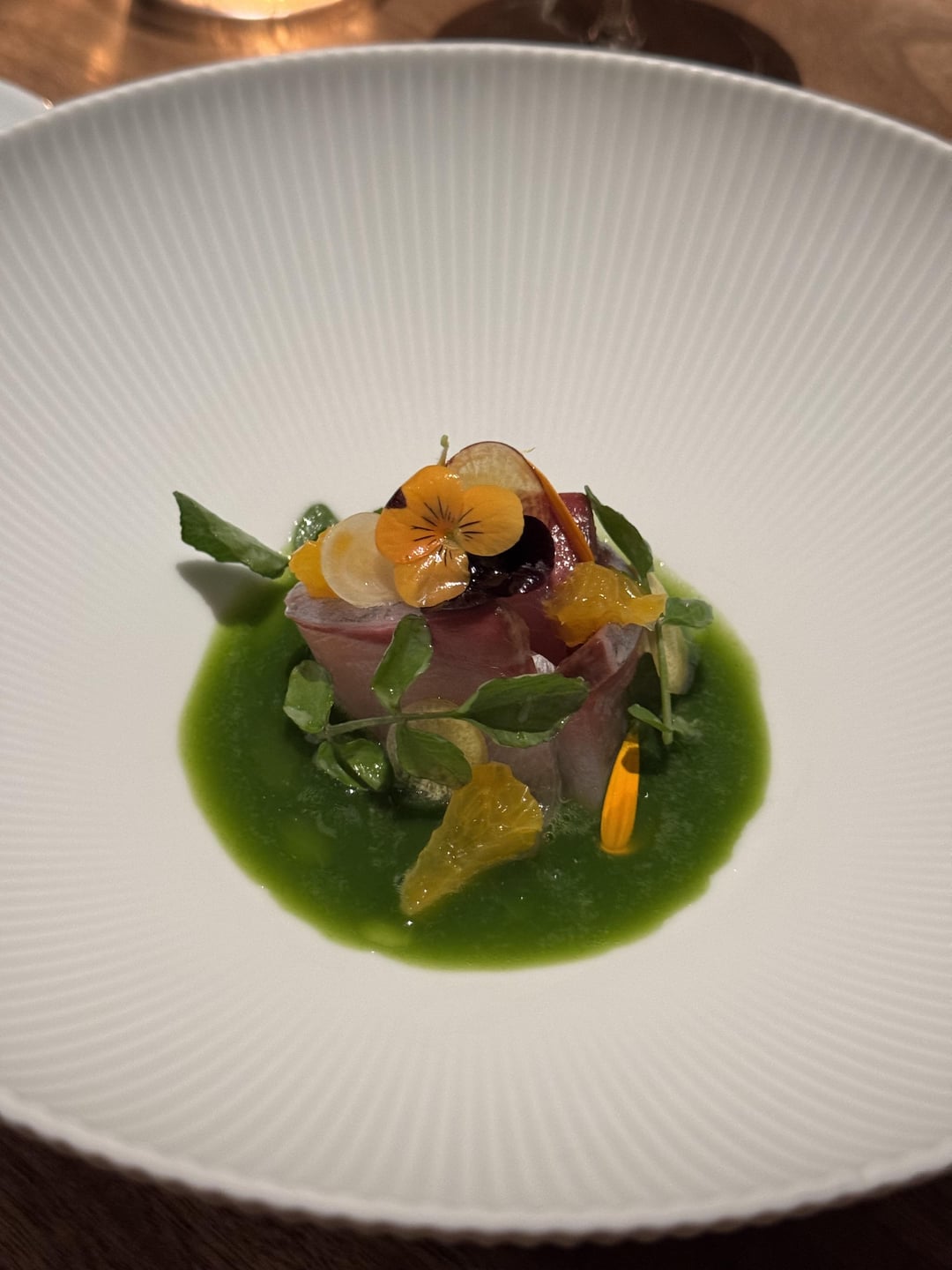
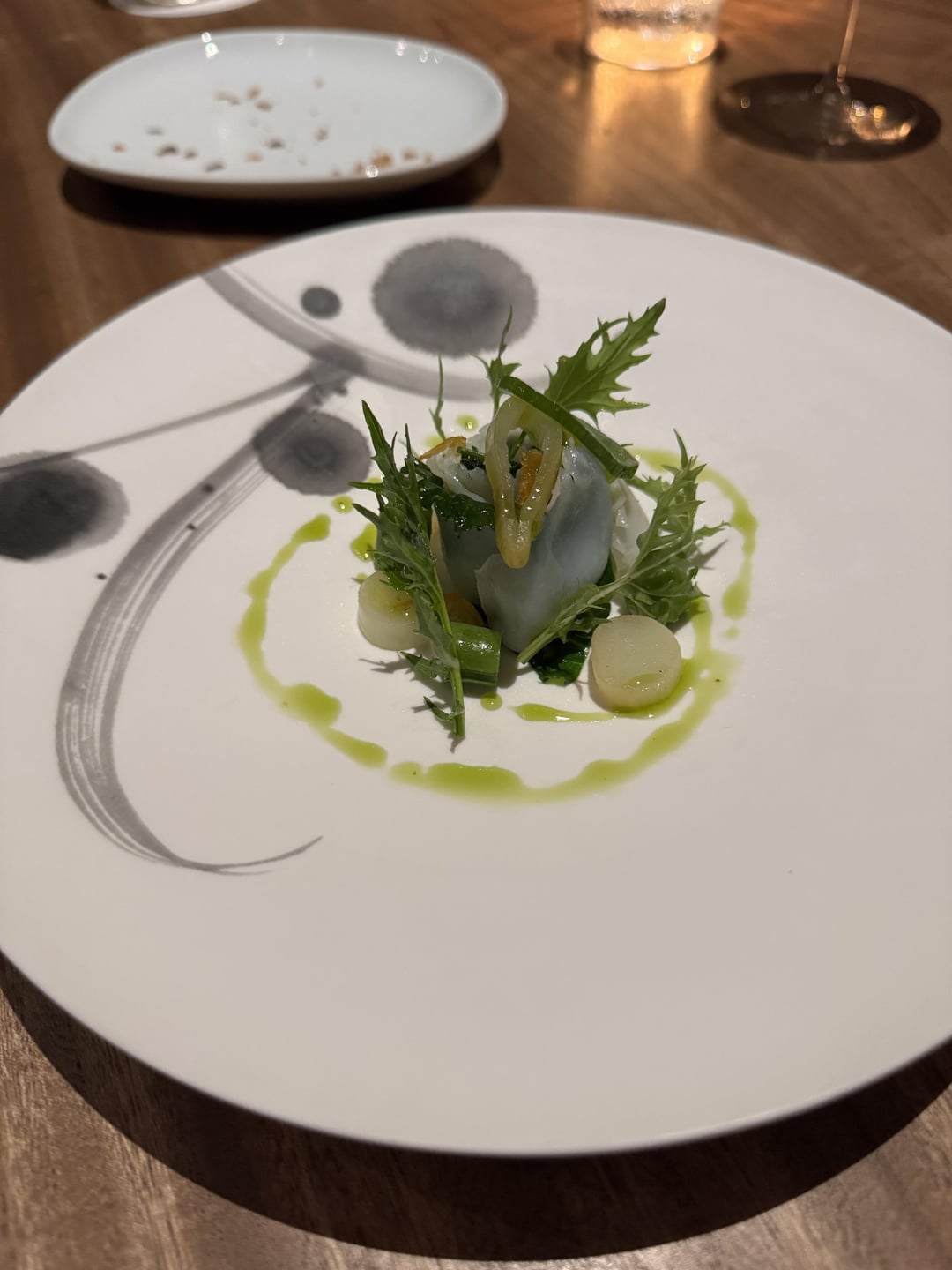
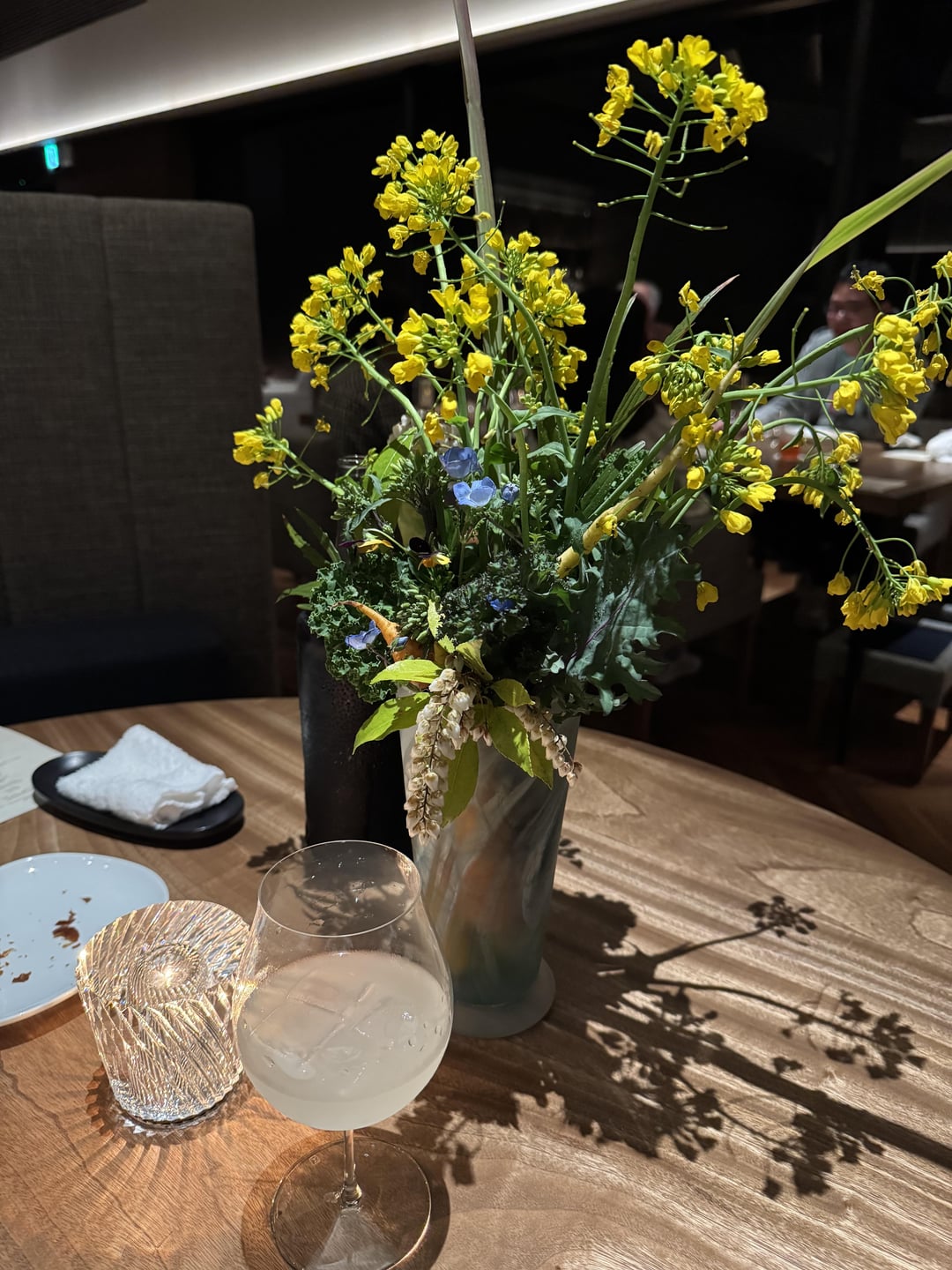
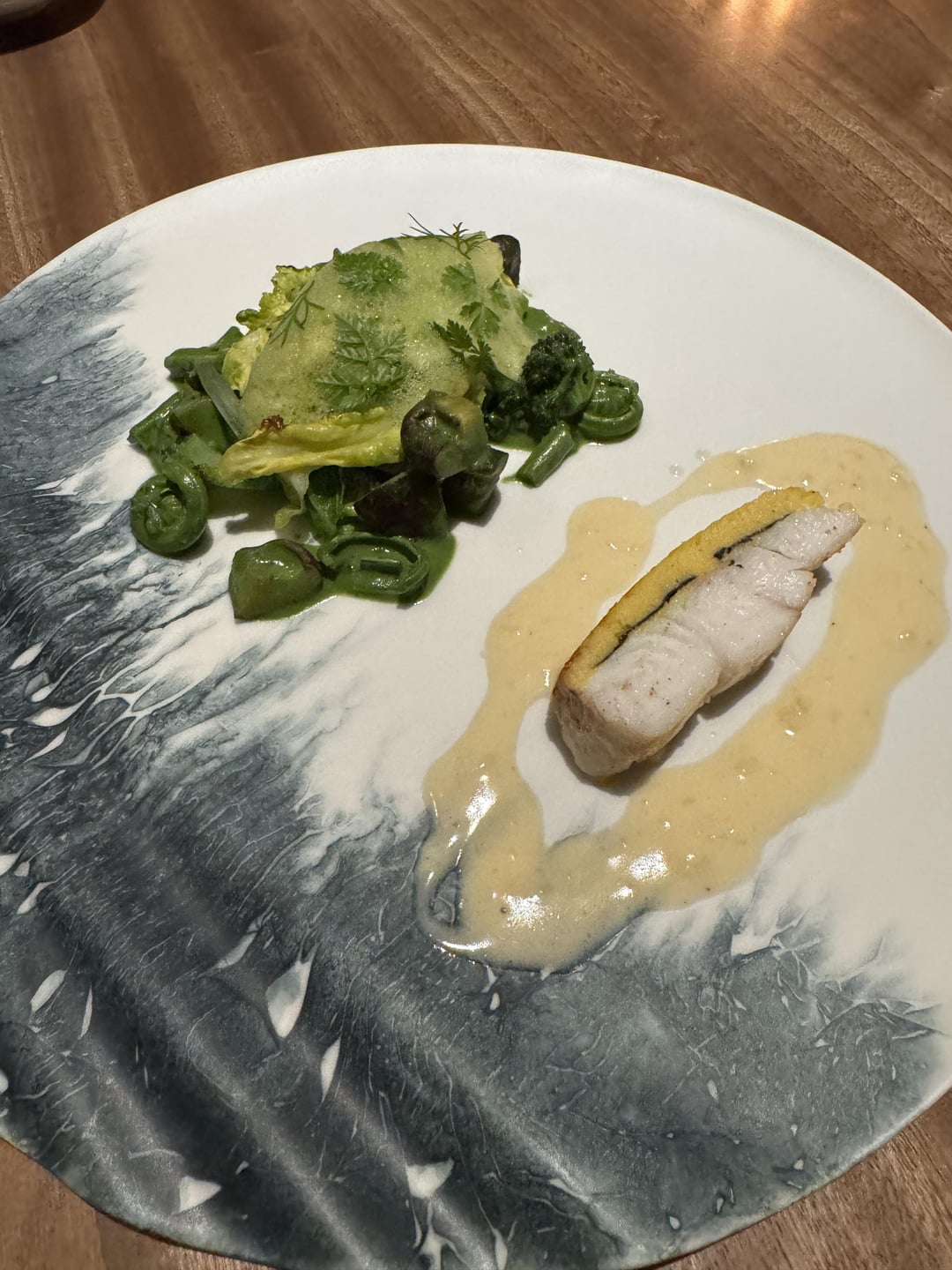
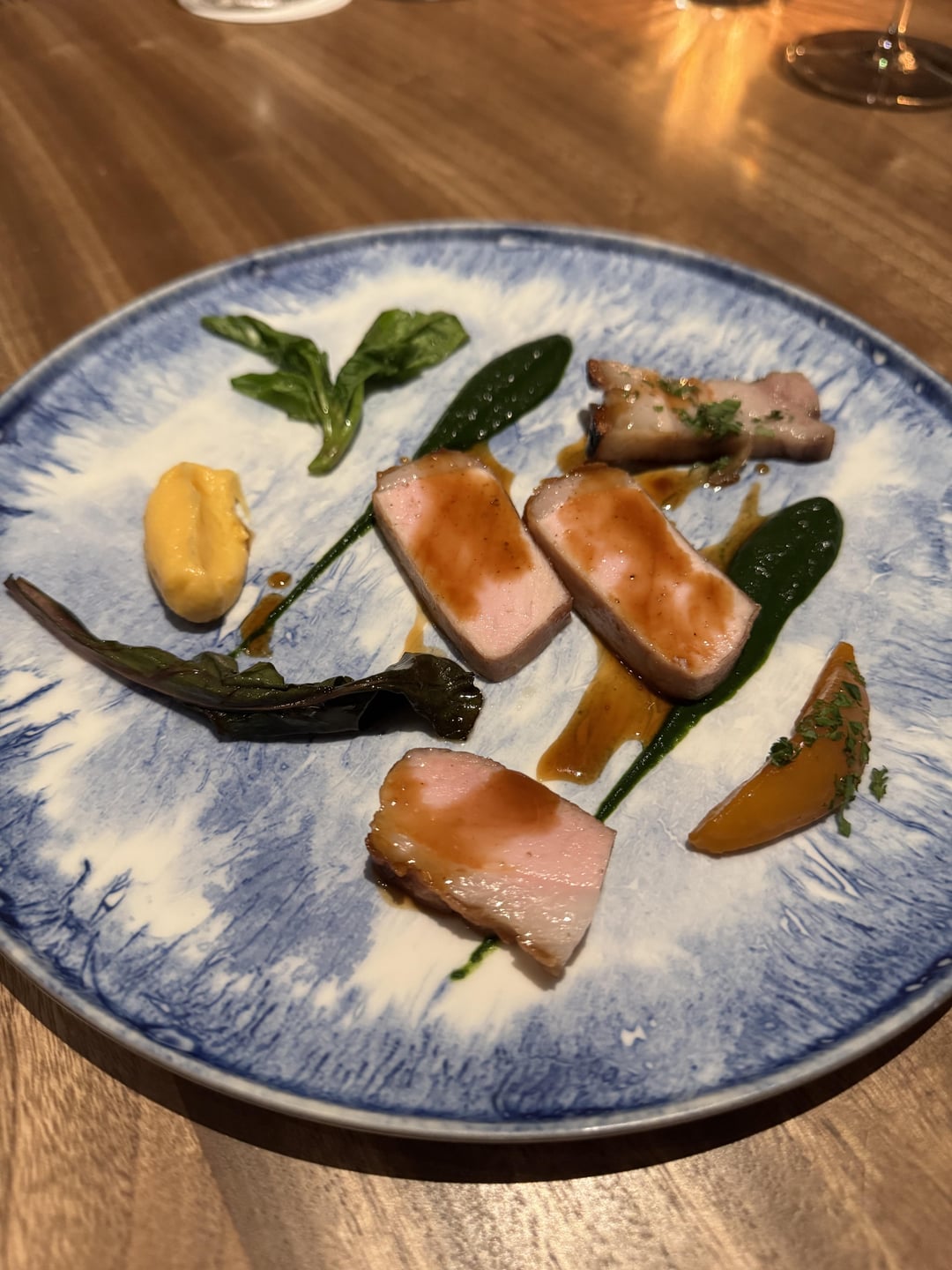
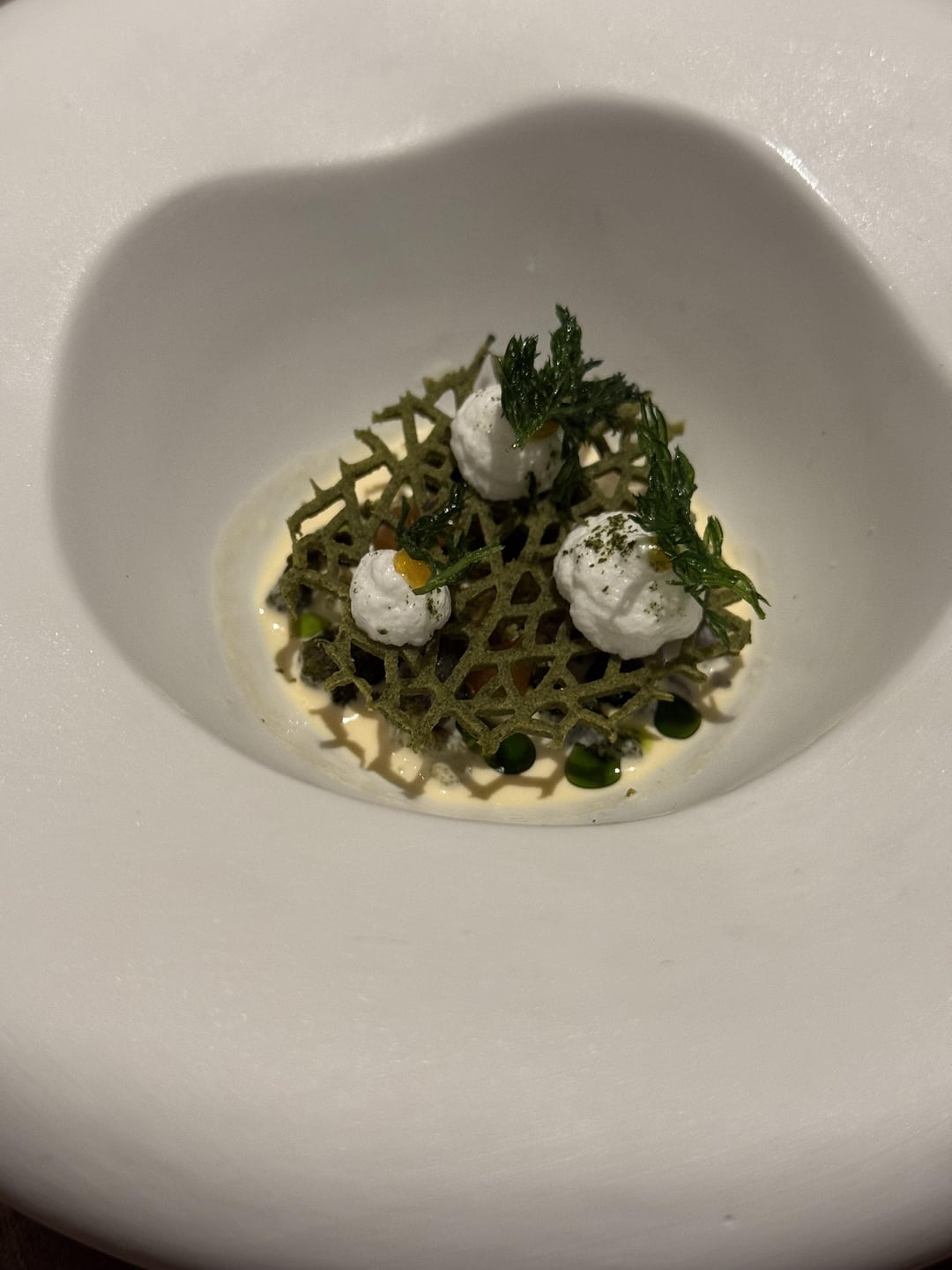
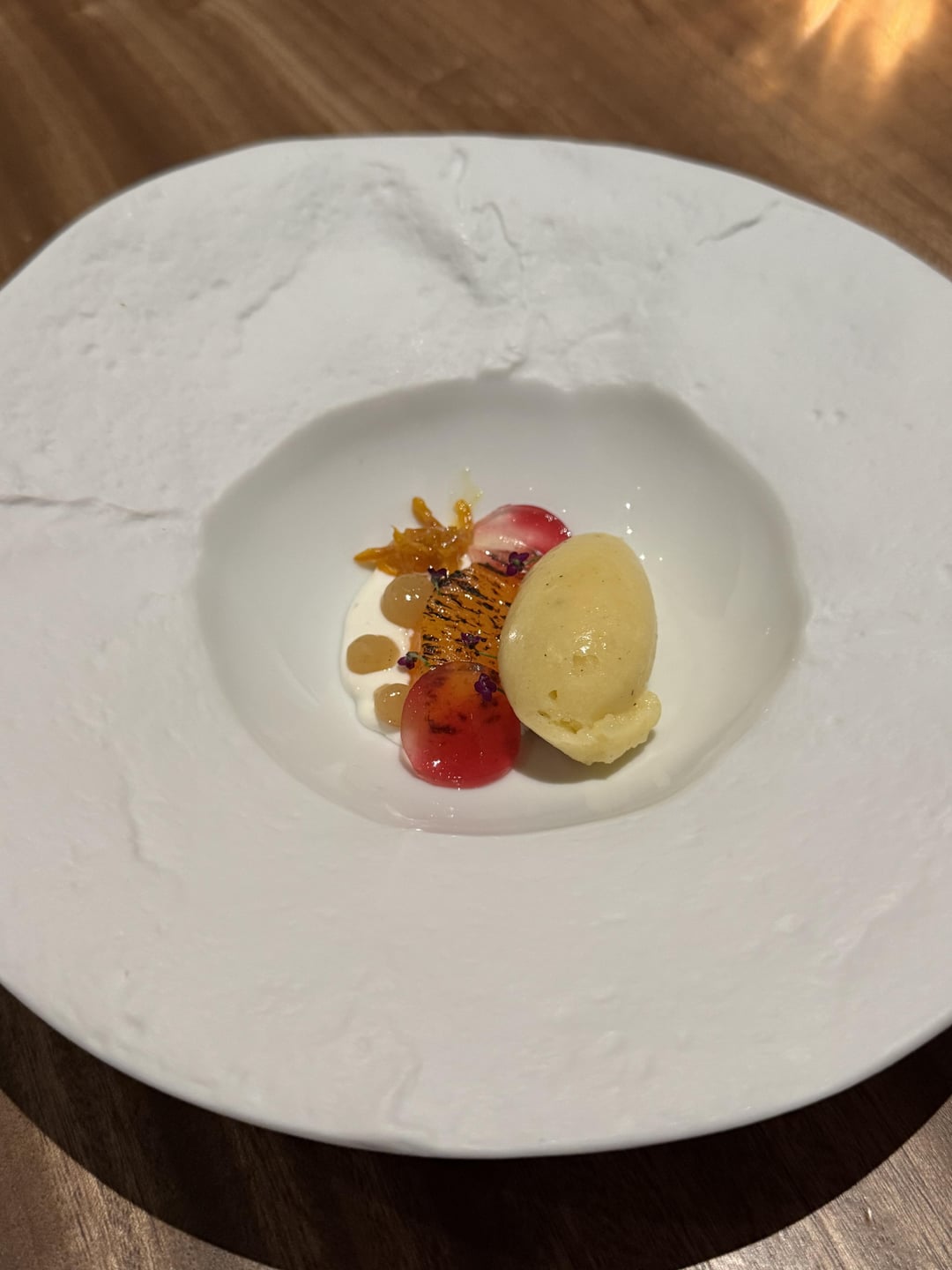
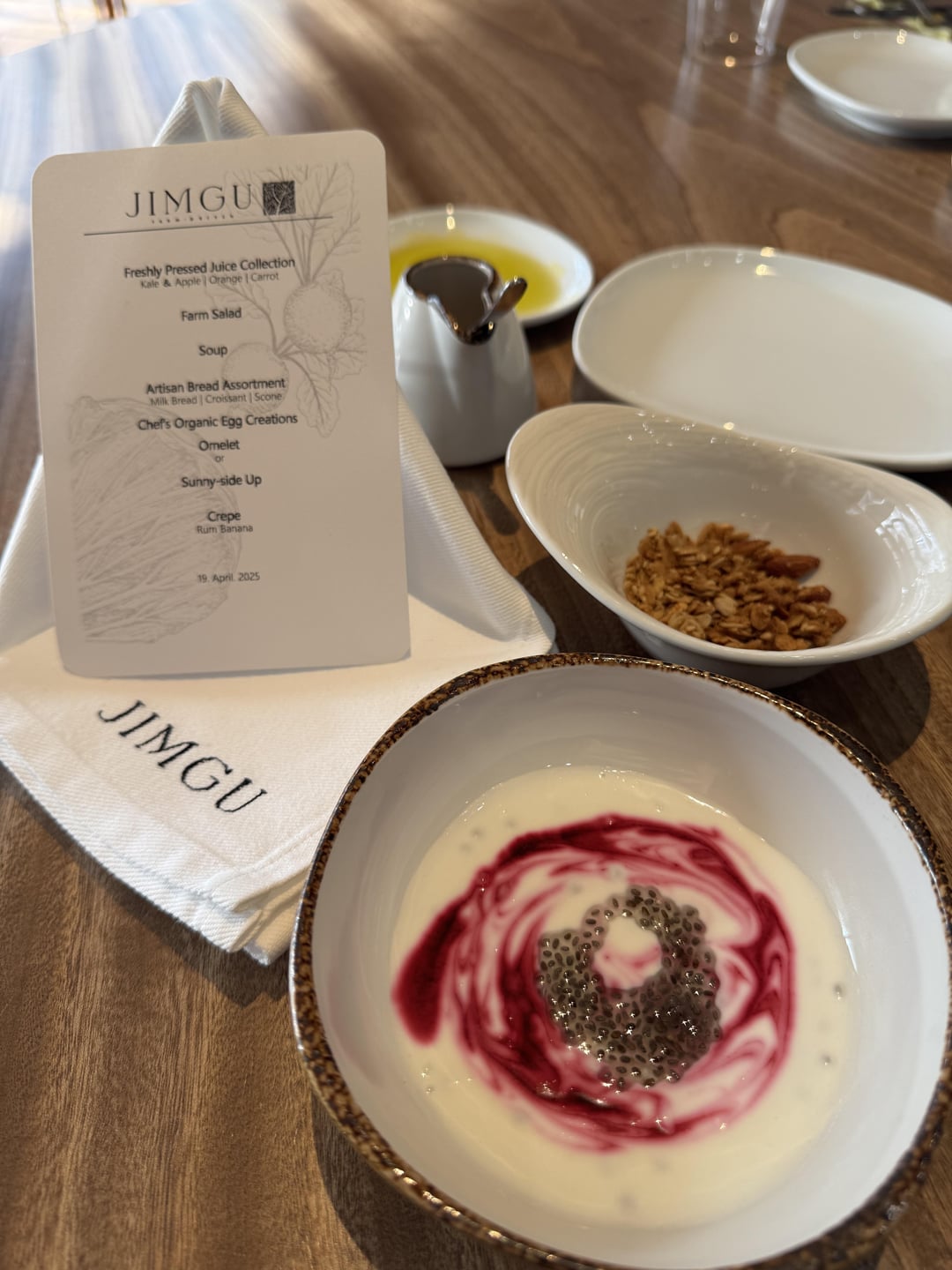
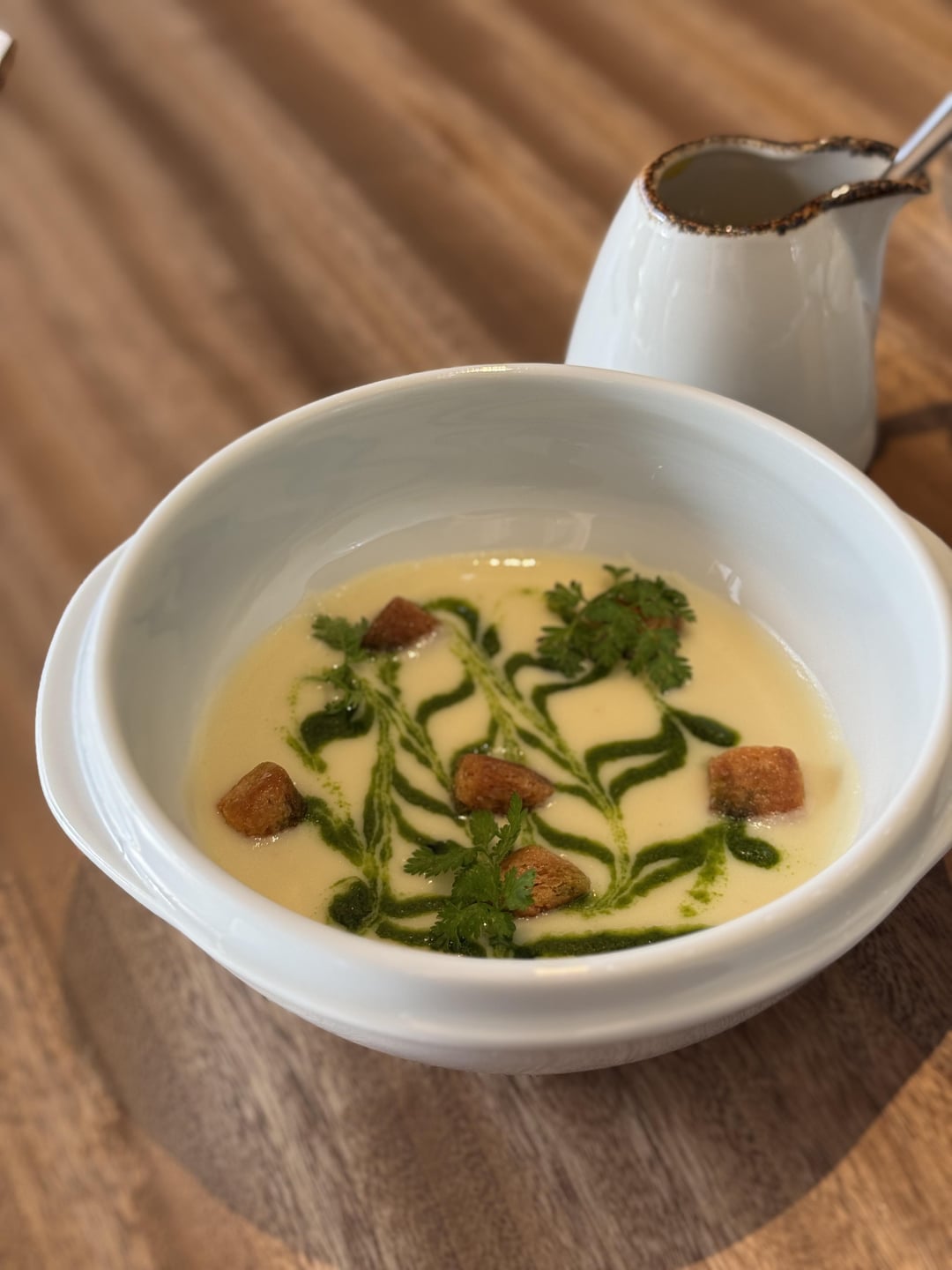
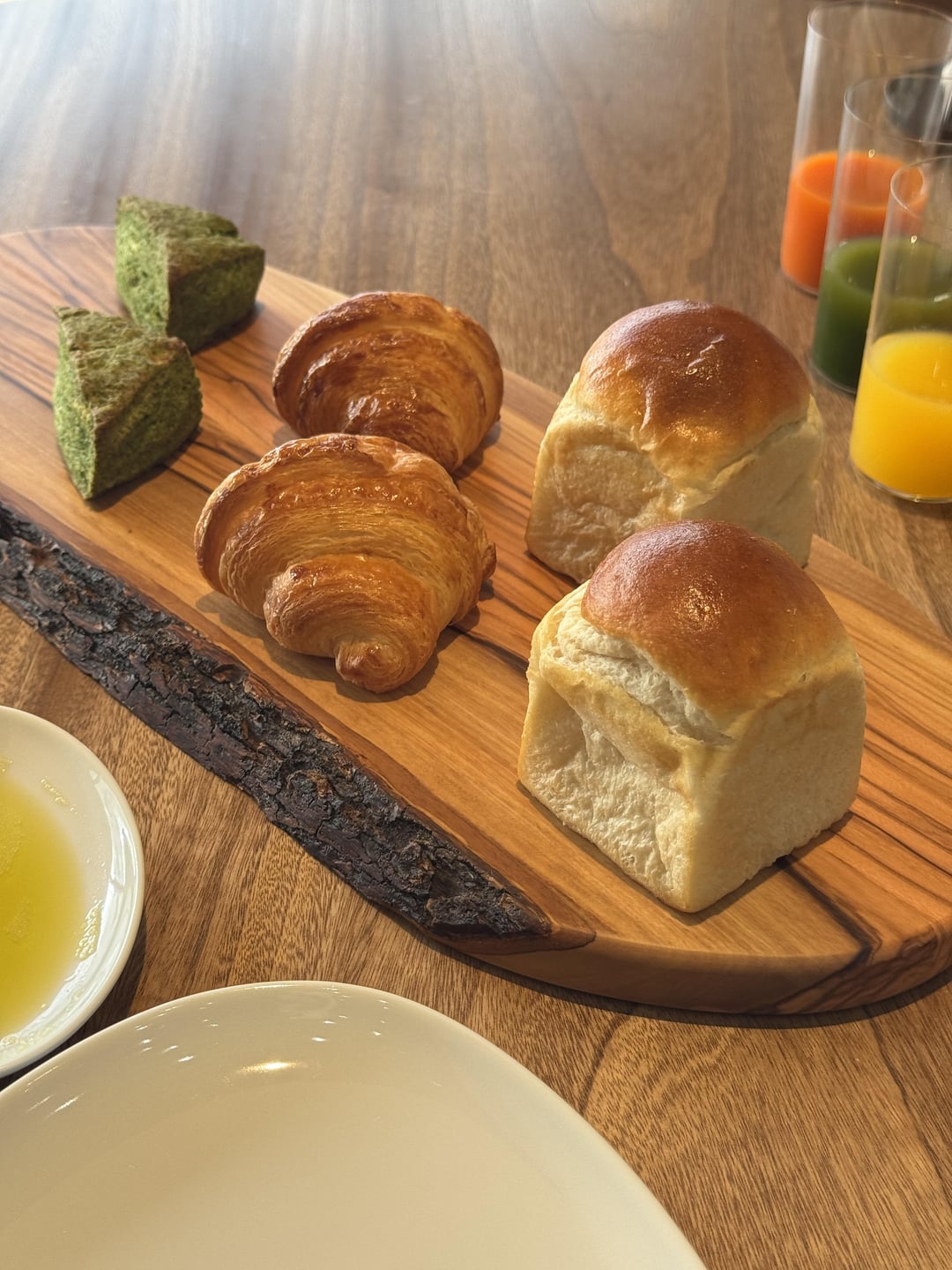
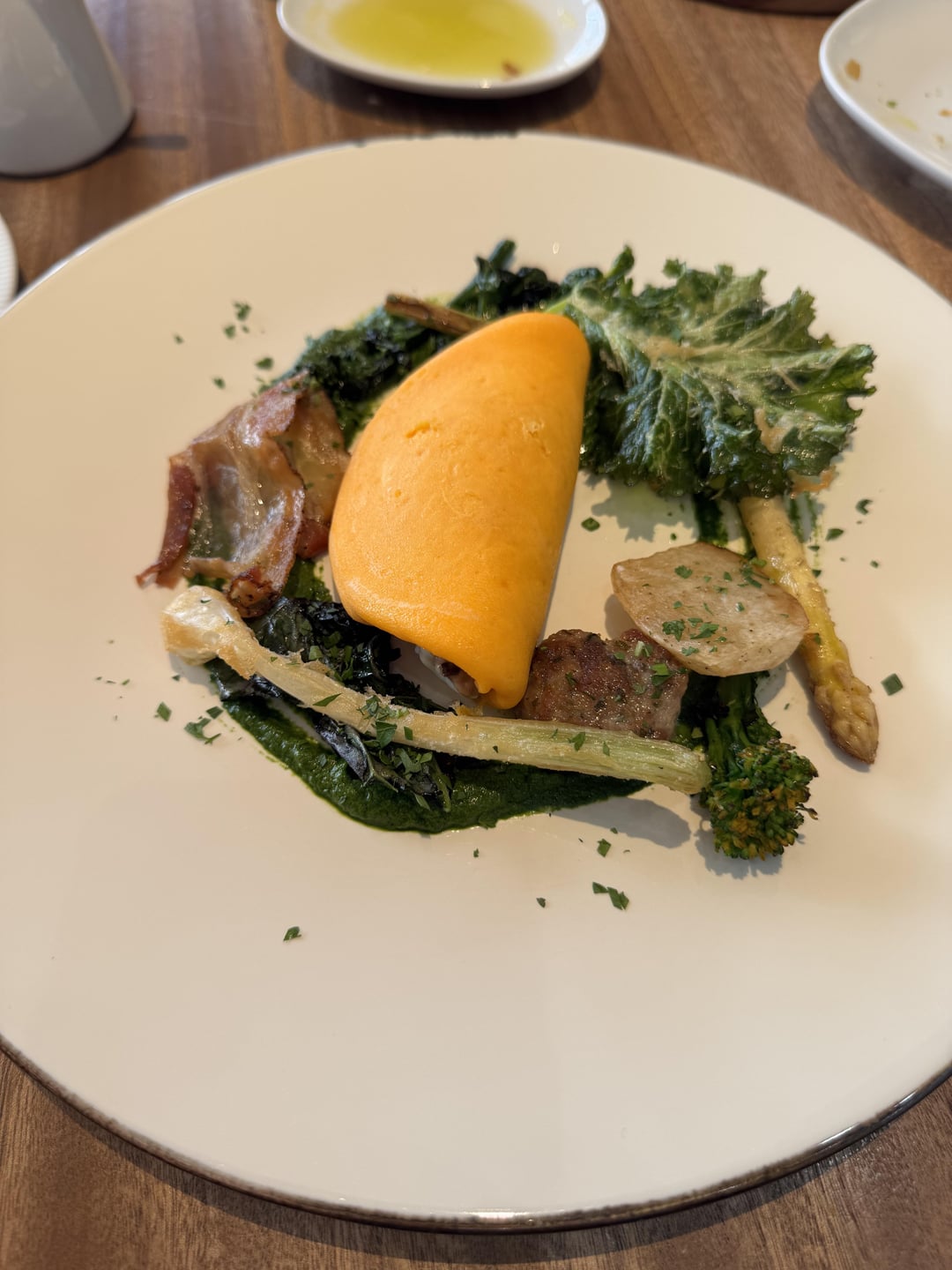
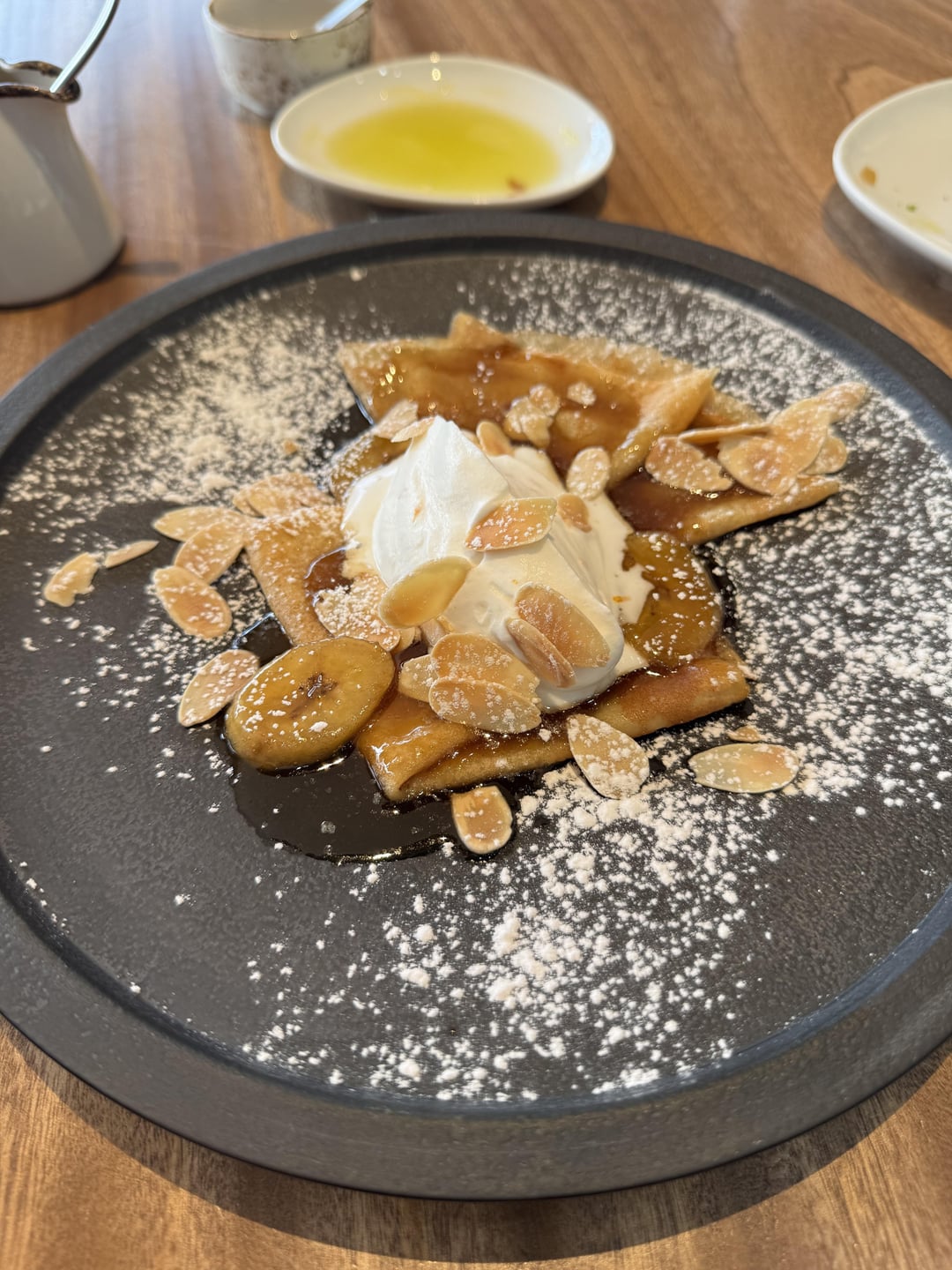
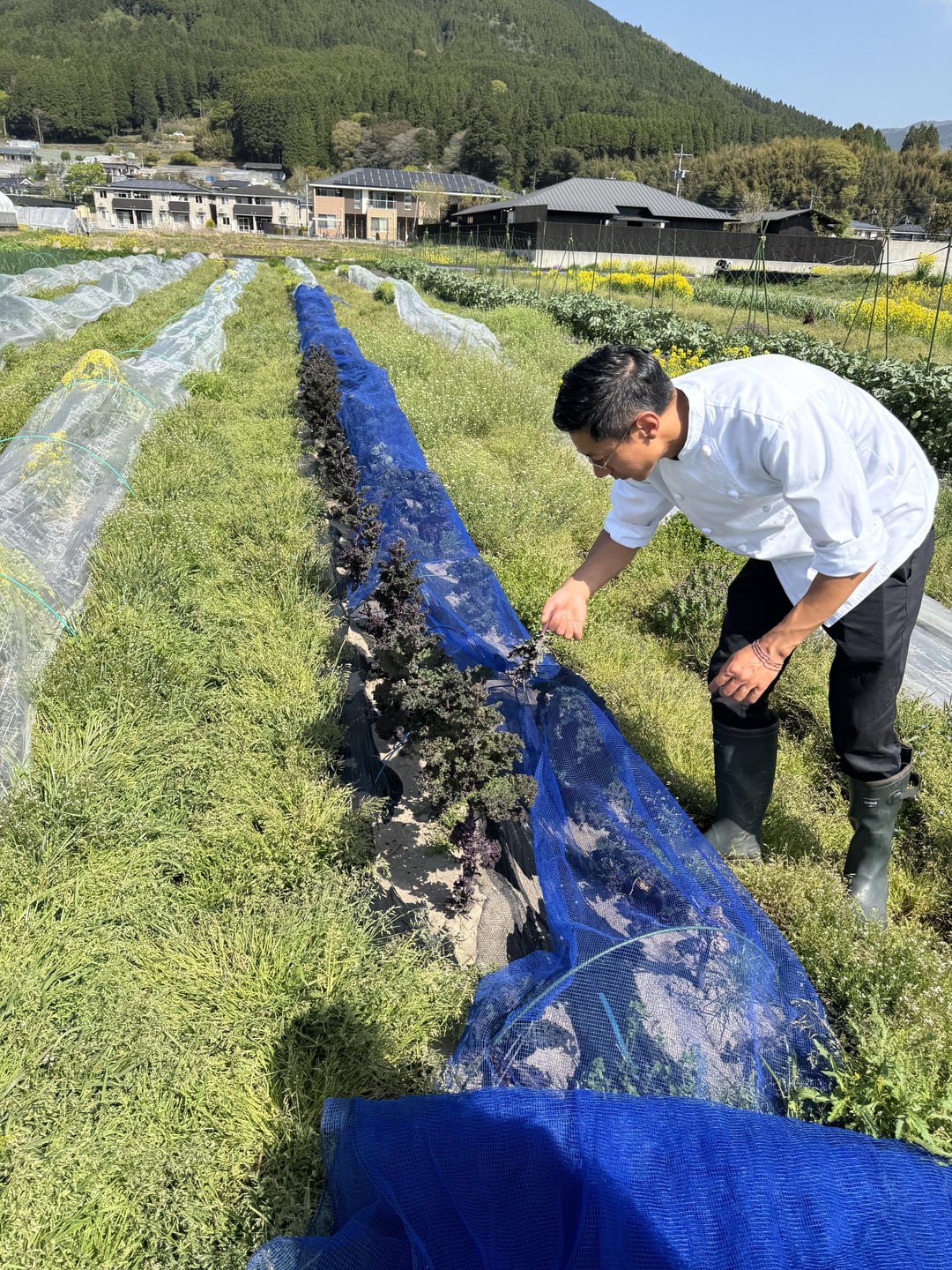
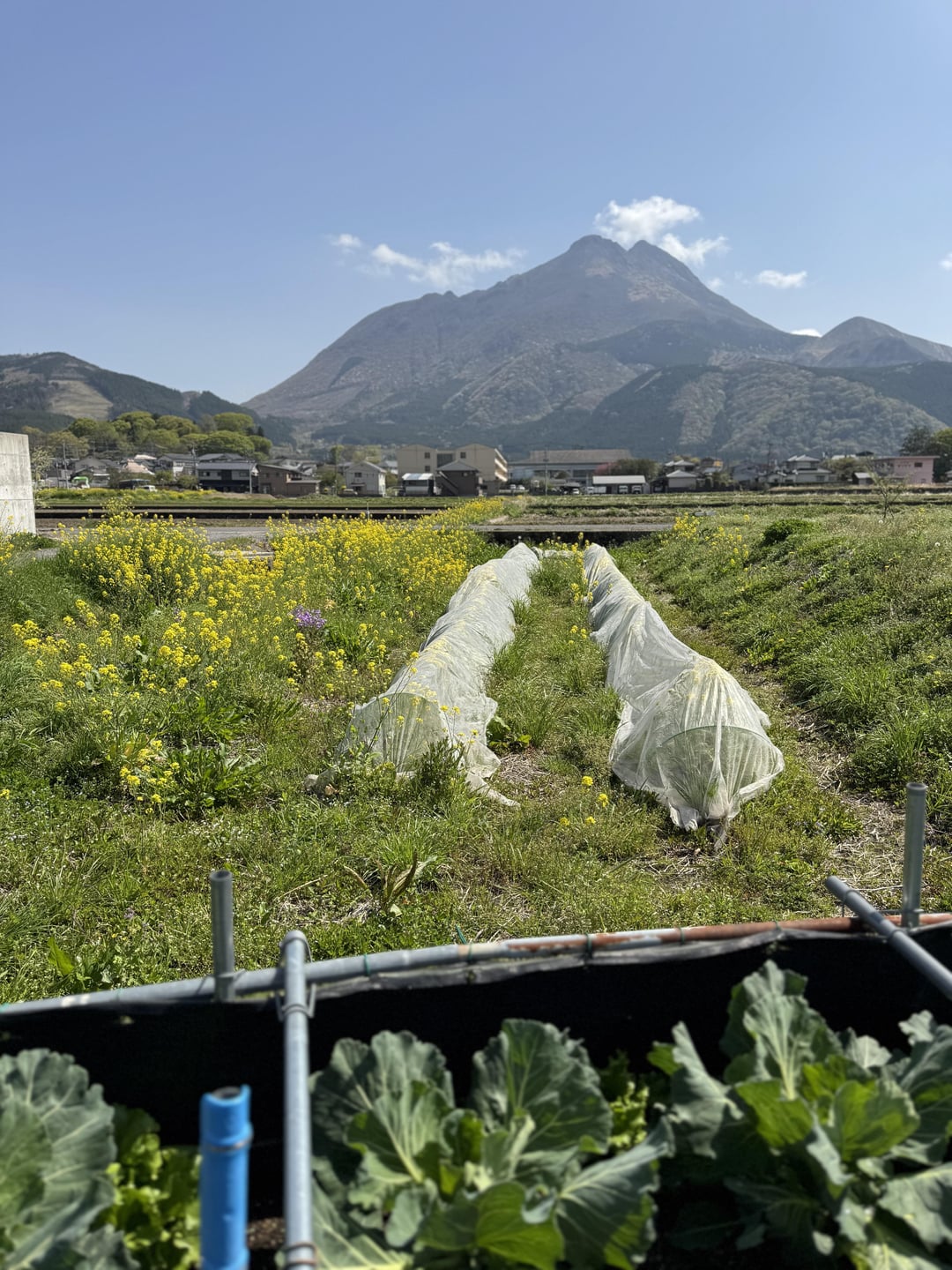
For part 3 of protégé series in Japan, we jump to the peaceful onsen town of Yufuin in Oita Prefecture, where I had the pleasure of staying at ENOWA, a fairly new boutique luxury resort, and dined at its farm-to-table concept restaurant, JIMGU. Opened in June 2023, JIMGU has been garnering great reviews and currently boasts a Tabelog score of 3.98 and and is in the Tabelog Top 100 Restaurants for Innovative Cuisine.
JIMGU is led by Tashi Gyamtso, a Tibetan chef who has quite a storied résumé. He trained under Dan Barber at Blue Hill at Stone Barns in New York, rising to the rank of sous-chef, and further sharpened his craft with stints at a few renowed restaurants including Noma (Copenhagen), Core by Clare Smyth (London), Narisawa (Tokyo), Den (Tokyo), and Kikunoi (Kyoto), and L’Arpège (Paris).
Inspired by the farm-to-table ethos from Blue Hill, Tashi made the bold move from New York to Yufuin, with support from ENOWA’s owner, to create something of his own. That vision became JIMGU, where the ingredients are sourced from the Kyushu region, and much of the produce comes straight from JIMGU’s own farm, just minutes away from the resort.
Dinner began in JIMGU’s greenhouse, where we were welcomed with a short tour of the herbs and vegetables that would feature in the meal. It was a relaxed and intimate setting, and we were offered vegetable snacks and an apéritif among the greenery. This was a lovely and immersive start to the meal. From there, we were led to the main dining room, a modern yet warm space that mirrors the restaurant’s commitment to seasonality and simplicity. My dinner consisted of nine courses (menu included in photos), with freshly baked bread on the side and mignardises with coffee/tea to end.
This was a highly enjoyable meal. While the cooking techniques on display were not complicated, they were well execution. Several proteins were featured throughout the evening, but it was the vegetables that truly, and expectedly, stole the show. Each dish was fresh, vibrant, and plated with colour and creativity. Some of the standout dishes for me included:
- Asparagus with almond sauce – earthy, tender, and beautifully balanced.
- Beetroot dish – I’m usually not a fan of beetroot, but this one completely won me over. Goes very well with the bread.
- The Signature Bouquet dish (First pictured) – This is first presented tableside as a bouquet of flowers before being taken to the kitchen and transformed into a plate that looked like post-modern art. It reminded me of L’Effervescence’s iconic salad. I scraped the plate clean.
- Saddleback Pork from Kagoshima – Juicy and well-executed, paired perfectly with its supporting vegetables and sauce.
Dessert was no afterthought either. The carrot leaves dessert was unexpected and refreshing, showcasing his creativity.
The service throughout the meal was excellent. The staff are fully bilingual in English and Japanese, and each course came with thoughtful explanations that helped us appreciate the ingredients, techniques, and inspirations behind the dishes. It really added to the experience.
Staying guest at ENOWA would be served both dinner and breakfast. The next morning, we had a delicious seasonal breakfast at JIMGU (photos and menu also shared). For breakfast, the highlight was the turnip soup, the omelet (featuring organic eggs from their nearby chicken farm) and the banana crepe. Before check-out, we were pleasantly surprised to be offered a personal tour of the JIMGU farm led by Tashi himself.
The farm is just a 5-minute drive from the resort and is within walking distance of JR Yufuin Station. We walked through the fields as Tashi picked fresh herbs and vegetables for us to taste, sharing stories of his move from New York to Japan, the challenges of organic farming (dealing with pests without pesticides), and his long-term vision, which includes growing their organic chicken farm and expanding his crop variety (he hopes to grow more nut plants in the coming seasons).
What amazed me even more was learning that Tashi also serves as general manager of ENOWA (well its a small hotel after all). To spend three years building a farm from the ground up (with no guarantee that the farm could succeed) before opening the restaurant, and then to run both the restaurant and the resort, such dedication is rare and deeply inspiring. By the end of the tour, I had an even deeper appreciation for the meals we’d had. It was clear just how much thought, labor, and love had gone into every single bite.
If you’re planning a trip to Yufuin, JIMGU is a must-visit. It is highly seasonal and your menu would really depend on the harvest that week (or even that day). While you do not need to stay at ENOWA and can book dinner separately via Omakase, staying overnight gives you the full experience such as access to the morning farm tour, which adds so much more context and richness to the dining experience.
As a side note, ENOWA is absolutely stunning. The rooms and villas are sleek, minimalist, and beautifully appointed with private onsen baths in every room, nestled within greenery. It’s calm, quiet luxury done right. In 2024, ENOWA was awarded two Michelin Keys, so you can be assured of a great stay here.
When I asked Tashi what his favorite season to cook is, he said winter without hestitation. Winter vegetables are his favourite to work with. It looks like I will have to visit JIMGU during winter seaason in the future.
Score: 4.5 / 5
Reservation Difficulty: Easy via Omakase, but instead of just having dinner, staying at ENOWA for dinner and breakfast, with farm tour, is highly recommended.
Cost: ¥27,500 for dinner (before service charge, as listed on Omakase).
by Single_Rutabaga_4776


1 Comment
Nice report and would be an interesting comparison with Villa Aida